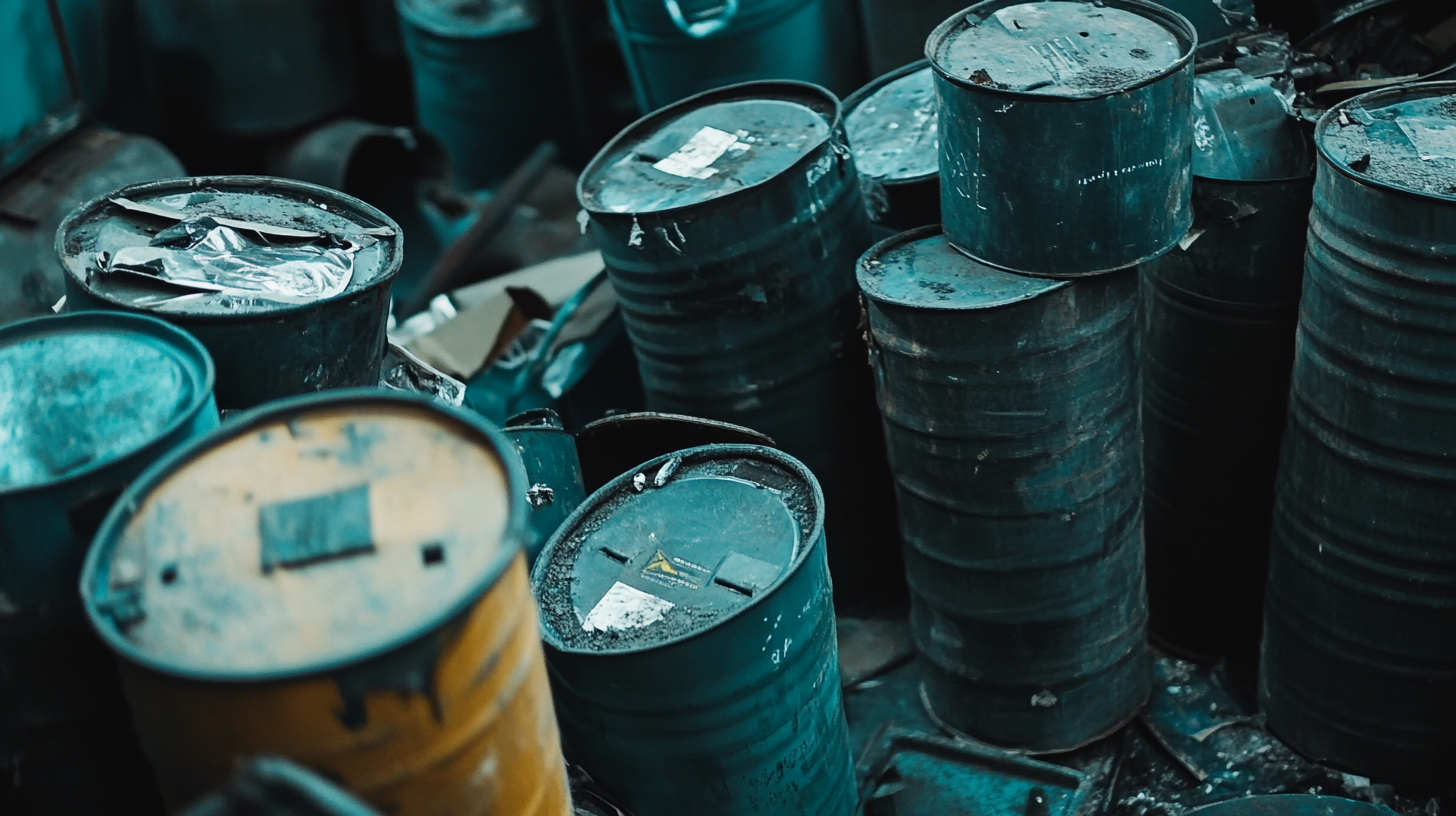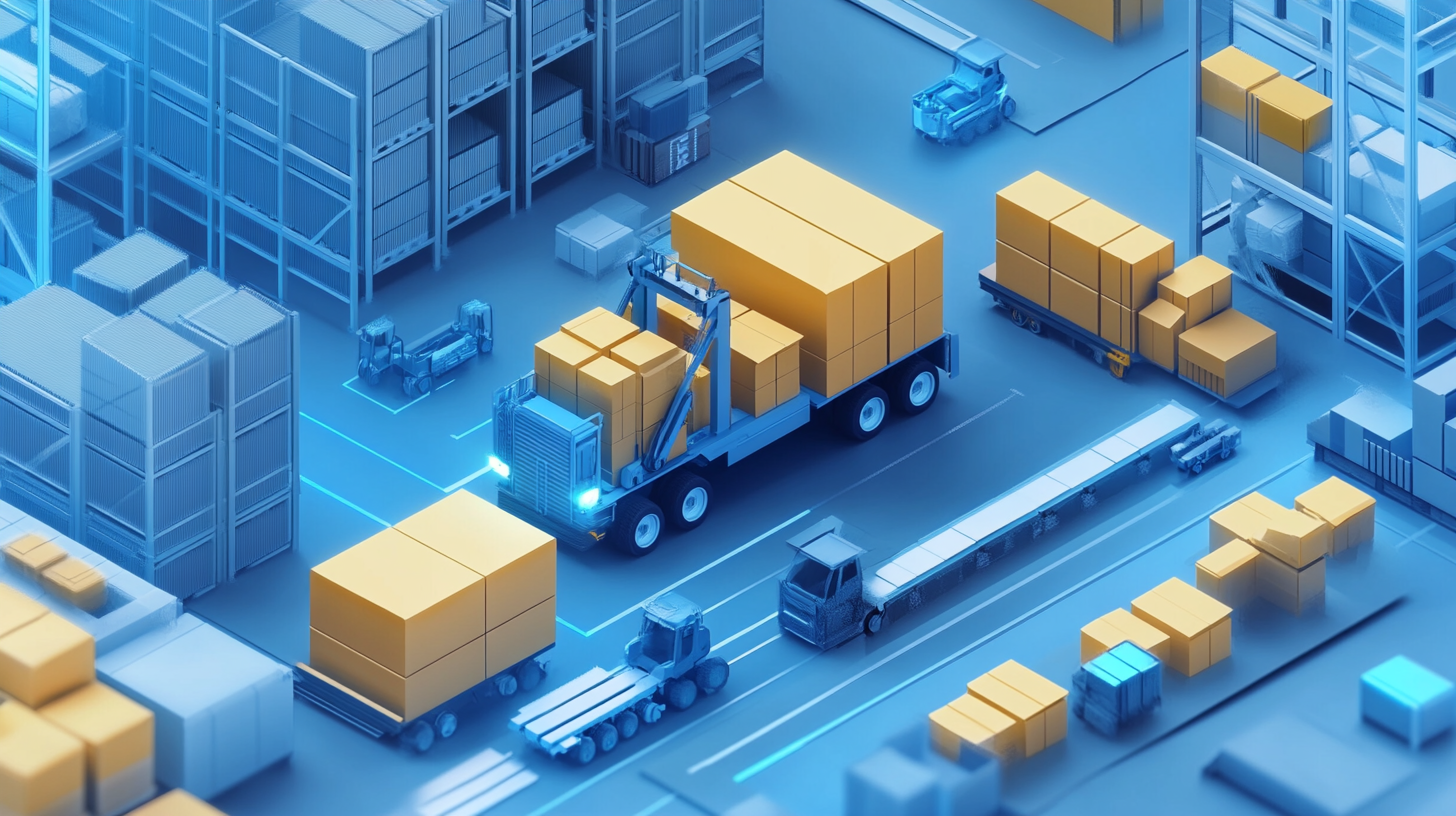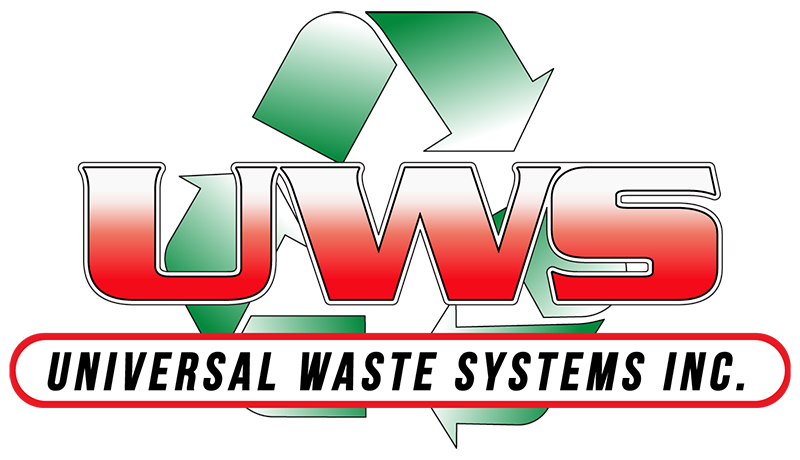Blog
Unlocking Quality Suppliers: The Definitive Guide to Sourcing County Waste Solutions Globally
In today’s globalized economy, sourcing quality suppliers for County Waste management solutions has become crucial for municipalities striving to enhance their waste handling processes. According to the Environmental Protection Agency (EPA), the U.S. generated about 292.4 million tons of trash in 2018, equivalent to approximately 4.9 pounds per person per day. As the demand for sustainable waste management practices rises, leveraging effective sourcing strategies can significantly improve service efficiency and environmental outcomes. A report by the World Bank emphasizes that waste generation is expected to increase to 3.40 billion tons by 2050, underlining the urgent need for counties to develop robust partnerships with reliable suppliers.
Navigating the complex landscape of waste solutions can prove challenging, where the stakes of quality and compliance with regulatory standards are high. With an increasing emphasis on sustainability, counties are now looking beyond traditional waste disposal methods and seeking innovative, eco-friendly solutions. A strategic approach to sourcing County Waste solutions is essential for contending with these challenges while optimizing budget allocations and service delivery. This guide aims to equip county officials and waste management professionals with the insights and tools necessary to unlock quality suppliers and enhance their waste management strategies effectively.

Identifying Key Criteria for Selecting Quality Waste Management Suppliers
When it comes to selecting quality waste management suppliers, it is essential to identify key criteria that can enhance the decision-making process. Recent studies highlight the significance of utilizing advanced methodologies, such as multi-criteria decision-making (MCDM), to evaluate waste management solutions effectively. For instance, the PROMSIS framework presents a robust approach to prioritize healthcare waste disposal center locations, incorporating risk control considerations relevant to operational needs. Additionally, the integration of machine learning and big data analytics stands out in improving solid waste management performance across urban landscapes. A global analysis has revealed that socio-economic factors significantly influence waste management effectiveness, with data-driven insights enabling cities to optimize their collection and disposal strategies. In fact, cities leveraging comprehensive datasets are poised to increase recycling rates and improve overall resource recovery. Moreover, innovative approaches like material flow analysis (MFA) and life cycle assessment (LCA) are being adopted to quantify waste dynamics, particularly in industrial sectors such as the footwear industry in Italy. These methodologies facilitate a deeper understanding of waste generation patterns and guide suppliers in creating sustainable waste management solutions. Through these frameworks and analytical tools, stakeholders can better evaluate suppliers not only based on their operational efficiency but also concerning their sustainability practices and risk management capabilities. Thus, ensuring the selection of quality suppliers who meet the evolving demands of global waste management challenges.

Exploring Global Compliance Standards in Waste Solutions
In the intricate landscape of waste management, compliance with global standards is paramount. As countries grapple with the growing complexities of waste management, understanding the various compliance frameworks becomes essential for organizations seeking to source county waste solutions. Each region may have unique regulations and guidelines governing waste management practices, from recycling protocols to hazardous waste disposal requirements. The variability in these standards can pose significant challenges for businesses operating on a global scale.
To successfully navigate these complexities, it is critical for organizations to conduct thorough research into the compliance standards of the regions they are interested in. Familiarity with international standards such as ISO 14001, which emphasizes the importance of environmental management systems, can provide a solid foundation for organizations. Furthermore, staying updated on local regulations ensures that suppliers align with the necessary legal and ethical frameworks, reducing risks associated with non-compliance.
In addition to adherence to regulations, fostering relationships with compliant suppliers can lead to sustainable waste solutions. By prioritizing partnerships with local suppliers who understand and practice these compliance standards, organizations can enhance their operational efficiency while contributing to global sustainability goals. Engaging with suppliers committed to responsible waste management enhances a company’s reputation and drives their value proposition in an increasingly eco-conscious marketplace.

Strategies for Establishing Long-term Supplier Relationships
Establishing long-term supplier relationships in the county waste solutions sector is crucial for maintaining a sustainable and efficient supply chain. The first step in fostering these relationships is effective communication. Transparent dialogue allows both parties to understand expectations and address concerns proactively. Regular meetings, whether virtual or face-to-face, can build trust and ensure that suppliers remain aligned with your organization’s goals. Furthermore, sharing insights about evolving market trends or regulatory changes can demonstrate your commitment to a collaborative partnership.
Another key strategy is to invest in supplier development. This can be achieved through training programs that enhance their capabilities and align them closer to your operational requirements. By supporting suppliers in improving their processes or technologies, you not only strengthen the relationship but also contribute to the overall quality of service provided. Long-term contracts and consistent order volumes can further cement these partnerships, allowing suppliers to plan and invest in their operations with certainty.
Lastly, recognition and appreciation go a long way. Acknowledging a supplier’s efforts through rewards, feedback, or simply expressing gratitude fosters a positive atmosphere. Building a strong rapport can lead to suppliers prioritizing your needs over others, thereby ensuring that your operations run smoothly. This approach not only supports the sustainability of your organization but also strengthens the entire waste management ecosystem.

Innovative Technologies in County Waste Management Solutions
The landscape of waste management is rapidly evolving, driven by innovative technologies that enhance efficiency and promote sustainability. The recent launch of the fifth Public Innovation Challenge by the Miami-Dade Innovation Authority embodies this trend, encouraging the development of creative solutions aimed at optimizing waste diversion. This initiative underscores the importance of leveraging cutting-edge technologies in addressing the complexities of county waste management.
Among the top technological advancements anticipated to shape waste management by 2025 are artificial intelligence (AI) and machine learning. These technologies are projected to streamline waste sorting processes and improve recycling rates significantly. Research indicates that implementing AI-driven systems can increase recycling efficiencies by up to 30% by automating sorting and reducing human error.
In addition to AI, the integration of smart waste management systems, including IoT (Internet of Things) devices, is becoming increasingly prevalent. Such systems enable real-time monitoring of waste levels in bins, allowing municipalities to optimize collection routes and schedules. A recent report highlights that cities utilizing IoT for waste management can reduce operational costs by up to 25%, while simultaneously minimizing their environmental footprint.
Further, advancements in food waste management technologies are critical, particularly in regions like India, which grapples with extensive food waste challenges. Innovations such as anaerobic digestion and composting technologies are essential in transforming organic waste into valuable resources. Industry data suggests that implementing such solutions could result in a 50% reduction in food waste by 2025, significantly benefiting both the economic and environmental landscape.
Assessing Supplier Performance: Metrics and Best Practices
In today’s global market, assessing supplier performance is crucial, particularly in the realm of county waste solutions. A comprehensive evaluation framework should leverage key performance indicators (KPIs) to gauge efficiency and effectiveness. According to recent studies, a holistic approach to performance measures can yield significant insights, allowing companies to not only monitor productivity but also align their supply chain with strategic business objectives. By implementing robust KPIs, organizations can track supplier efficiency, ensuring that the solutions offered meet both operational and sustainability standards.
Supplier risk management is another pivotal area to focus on. As highlighted by Moody's Analytics, evaluating supplier performance risk allows businesses to identify those suppliers who may pose higher risks. This proactive approach minimizes disruptions and enhances reliability in the supply chain. Furthermore, adhering to principles of due diligence in supplier selection—such as respecting human rights and ensuring sustainable sourcing—can lead to improved supplier relationships and enhanced brand reputation.
Implementing transparency throughout the supply chain also plays a vital role in performance assessment. Sharing information openly allows companies and consumers alike to understand the sourcing practices involved. This level of transparency fosters trust and drives a cultural shift towards sustainability, as organizations strive to reduce emissions and incorporate recycled materials into their processes. Additionally, leveraging data and artificial intelligence can revolutionize procurement, transforming it into a strategic function that delivers significant business value while optimizing supplier performance.
Request a Quote
Fill out the form below and one of our specialists will contact you to discuss your questions and needs.

